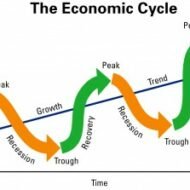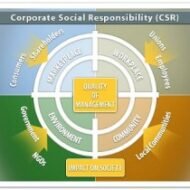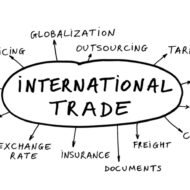Posted by Managementguru in Economics, Financial Management, Principles of Management
on Mar 15th, 2014 | 0 comments

Demand vs. Supply- Parameter deciding market equilibrium The success of economic freedom of a country is naturally reflected in the form of human prosperity. Countries like India are evidencing a consistent increase in their annual GDP rates which obviously must have reduced the population percentage living below poverty line; yet this has not been accomplished and the question is, is it really something to do with the economic model or is it the bureaucracy and inefficiency the root cause for the strain in the economy? Flow of Economic Activity: This discussion aims at shedding some light on the flow of economic activity in a free market economy. The elemental players or contributors in a free enterprise market economy are individuals and firms. Individuals who own or control resources (in the form of labor, capital or natural resources), sell these resources to firms and obtain money. These resources which serve as necessary inputs in the production process add value to firms. The money received by individuals is called factor payment which is utilized to fulfill their consumption demands of goods and services. Two distinct areas of interaction exist between the individuals and firms. One is the product market where the products are bought and sold and the other being a market for production factors, where the inputs such as labor, capital and natural resources are traded. What is the activity in a product market? Fundamentally business is all about demand vs. supply. The consumers’ demand has to be met with by the manufacturers. Profit is the primary motive of any firm and the priority of a firm lies in responding to the demands of the consumer market by supplying goods and services to the potential and prospective buyers. Input costs and production technology are the determinants of supply conditions. People’s preferences and earnings decide the elasticity of market demand. The price of the product and quantity sold is a result of the interaction between demand and supply. In a product market money flows from consumers to firms and goods and services flow from firms to consumers. What happens in a factor market? The reverse of those conditions in the product market are seen in a factor market. Here the individual becomes the supplier of production factors and hence the money flows from firms to individuals and factors of production from individuals to firms. Prices and profits control the flow of money and resources through the factor market and flow of money and goods through the product market. What is a Free Market Enterprise? Added advantage of a free market enterprise is that, the effortlessness with which one can enter and exit the market. The activity flow proves advantageous to each person involved .Firms make profits, individuals are satisfied of their consumption demand for goods and services, resource owners are compensated for their services. If an individual is not able to benefit by trading in these markets, he or she is not required to do so or free to leave the market which ensures that nobody is made worse off by voluntary trade in these markets. Essentially countries have to go in for suitable economic restructuring that promotes equality and even distribution of wealth. Wall Street protest in US is a clear-cut indication of strained market economy which is a result of people’s fury against the prevailing economic...

Posted by Managementguru in Change management, Economics, International Business, Principles of Management
on Mar 15th, 2014 | 0 comments

Factors That Influence Global Economy The industrial and business environment of developing countries has been subjected to a sea of changes owing to the economic reforms and policies in the light of globalization, privatization and liberalization. A long term economic vision is necessary for these countries to establish themselves in the global market which facilitates the process of becoming self sufficient in due course of time. Let me present you with a synopsis of how this change can happen and how countries are adapting themselves in lieu of the global economic boom. Multi Brand Retail Markets: Many multinational companies have acquired and are trying to acquire a major part of equity in multibrand retail markets of the host country and sometimes they opt for Joint ventures to factorize the economy of scale which also proves to be a win-win situation for both the parties. Developing countries have altered their economic views on foreign direct investment and are very liberal in their attitude in providing with the necessary licenses. The entry of multinational companies and their potential investment has even altered core sectors like power, oil and telecommunications. Moreover, the benefit of cheap labor, economic subsidies for the start of operations in economically backward regions lures foreign investors. Rush of Entrepreneurship: There is a rush of entrepreneurship in the developing countries, in the form of setting up of small scale industries, cottage industries for which liberal subsidies are provided by the governments to encourage the act of entrepreneurialism. Also people want to go for diversification, mergers and acquisitions in the wake of global competition. Capital Markets’ Role: Capital markets have gained new buoyancy. The rapid growth of stock market and its influence over the international economic scenario have made foreign brokers to keenly follow the market changes for potential investment. The one striking feature of the economy of developing countries is that, it is a self made economy and withstands the pressures of the business cycle, such as recession and inflation, unlike foreign markets that have failed to stabilize their markets owing to what is called sub prime lending, a plan that has failed to achieve the desired economic growth. Instead of making the capital market alive with fresh infusions of funds, it has left many banks and financial institutions bankrupt. Banking Sector: Banking sector has scaled to greater heights and has come under a competitive environment. Deregulation of interest rates to attract potential investors, new technology, products and aggressive marketing usher in new competition; disinvestment of government equity in nationalized banks have made banks to operate as commercial institutions and their services get marketed as branded consumer products. Financial services have emerged as a new business and funding options are aplenty increasing the chances of raising capital. This has evolved as a separate and major source of business fetching revenue to the service providers. Private Sector: Private sector is gaining importance in countries like India, where they have entered all the core industries like oil, mining, telecommunications, road building, railways, ports, civil aviation etc. This serves as a revenue source for the government and this kind of economic restructuring has brought a wave of enthusiasm amongst the potential investors. Imports have become an entrepreneurial activity and are out of the government domain and this has been facilitated by relaxation of licensing hassles. These are some of the recent trends in the developing countries that have captured the interest of multinational...

Posted by Managementguru in Business Ethics, Business Management, CSR, Economics, Organisational behaviour, Principles of Management
on Mar 15th, 2014 | 0 comments

CSR – An Image or Ethos A company’s sense of responsibility towards the community and environment in which it functions is known as corporate social responsibility.The object of social responsibilities of business has become the hot topic for discussion. Let’s not forget that really big companies are into the process of service benefiting economically backward population. It is widely accepted that accountability to owners is too narrow a concept for today’s business and that there is no reason why owner’s interests should take precedence over the interest of other claimants-employees, consumer community and the society at large. Responsibilies of Business Concerns: There is no definition of the concept of social responsibility which is valid for all business concerns and for all times. This is because responsibilities of business should be related to the changing societal expectations, which is dependent upon the social, cultural, political and other environmental forces, which are dynamic too. Business responsibility to the society goes beyond simply assuming the profit-making role. It implies that the management has to protect and improve the welfare of the society as a whole along with its own interest. What is the primary objective of a business? One common misunderstanding about the concept of social responsibility has to be clarified here. It does not challenge the primary objectives of business. It does not say that “to make profit is to sin.”Profiteering is different from profit making. Selfish interest is different from self-interest. Social responsibility is against profiteering and selfish business behavior. But profit making and self interest should be the basic elements of corporate responsibilities. Economic concerns and social concerns need not be viewed as opposite ends. They are complementary to each other. They are consistent with one another. Thus the nature and content of business responsibilities depend upon societal expectations placed on organizations which include invariably the economic performances and legal obligations, and go beyond them. How far it goes beyond depends on the economic, social and political environment in which the business and society operates. Arguments against social responsibility: The arguments against social responsibility are based on the belief that the society assigns a strictly economic role to the organizations and the concept dilutes the primary purpose of the business. Business should mind its business and business persons don’t have the right attitude to serve the society. Let it be the responsibility of government and social service organizations. Business has already enough economic and social power and no more concentration of power is necessary to business circles. Service to society is undoubtedly an important objective of business. It can render service to society by providing quality goods and services to the community; it can provide adequate opportunities to the members of the society; provide goods and services at reasonable price. Another important aspect would be to ensure control of pollution towards air, water and soil. Showing concern for the well -being of other constituencies of the society is a good gesture that helps the business to earn goodwill and support of the society as a...

Posted by Managementguru in Economics, Financial Management, International Business, Marketing, Project Management
on Mar 11th, 2014 | 0 comments

What is Trade? Trade is the exchange of commodity and services. International trade represents business transactions taking place at the global level, and it is fundamentally different from domestic trade. Trade at international level demands huge investments, network of franchisees and proficient people to run the show. Many corporate giants are trying to capture Asian markets, especially Indian market, which has become the industrial hub for such economic activities. Economic liberalization has been the focus of many developing countries for the past two decades and this has allowed multinational companies with huge investment potential to enrich the weaker economies. What is International Trade? International trade tries to generate more foreign exchange, which is always good for the economy. Say, if a country has rich resources of petroleum, naturally it will try to sell the surplus to countries not endowed with such natural resources. That is why Middle East nations are prosperous and economically independent. The diversity in productive possibilities in different countries is due to the presence of limited natural resources. When a country gets a head start in a particular product, it can become the high volume, low cost producer. The economies of scale give it a significant advantage over other countries, which find it cheaper to buy from the leading producers than to manufacture the product themselves. Barriers for Effective Trade Every nation must try to specialize in the production and export of those commodities, which are available in plenty and must import such products in the production of which they have a resource deficiency. It should be remembered that there are severe man made barriers in international trade such as, export duties, quotas, exchange restrictions etc.,that hinder the free movement of products. International Trade and Finance Nevertheless, it is not also possible for a country to produce domestically every kind of product. In spite of all these restraining factors, global trade is thriving, thanks to the advanced technological aspects introduced in communication and faster means of transportation. Distance is no more a constraint and the world has become one small global village. Foreign Exchange Issues All domestic transactions, say in a country like India take place in rupees, which is the legal tender in the country. However, in its trade with other countries like USA, Germany, Japan, France and Britain, the payments have to be made in terms of dollars, marks, yens, francs and pound sterling respectively. The mechanism through which payments are effected between two countries having different currency systems is called foreign exchange. It may be also defined as the exchange of money or credit in one country for money or credit in another. Foreign exchange rates can affect relative prices and net exports. A rise in the a nation’s foreign exchange will depress that nation’s net exports and output, while a fall in the foreign exchange rate will increase net exports and output. Because of the significant impact of exchange rates on national economies, countries have entered into agreements on international monetary...

Posted by Managementguru in Economics, Principles of Management, Project Management, Strategy
on Mar 11th, 2014 | 0 comments

E-Commerce Business Models – Highly Recommended Internet User Statistics in India: 100 Million unique internet users 25 Million Facebook users 20 Million Youtube users 10 Million tweeters Ecommerce market size: 46520 Crores Role of Trade and Commerce: Trade and commerce play a decisive role in boosting up a country’s economy. An economy is said to expand only when a country concentrates on bringing a radical change in its commercial activities. Needless to say, the invention of computers and computer based services, has revolutionized the industry of commerce, where trading is done online. The emergence of “E-Commerce” is a real benefit bestowed on the traders to sell their merchandise in a popular platform called internet. E-commerce has overturned the history of retail selling market, due to the unanimous support of the consumers. Lifestyle Changes: The changing life styles of consumers have led to the evolution of e-commerce as an appealing alternative to terrestrial retail network. Everything has been made simple and easy. All kinds of services are available for the consumer at a mouse click’s distance. Internet gives him the privilege and liberty to happily surf through the net, from the cool confines of his house, to finalize and order a product or service of his choice. Payment systems are again made easy, through PayPal or credit or debit cards, electronically verified and authorized. So, why would consumers wait in a long queue to avail a specific service or drive down to the market place for purchasing their merchandise anymore, when e-commerce presents them all in a platter at their door steps? The Internet – Virtual Market Place: Internet serves as the virtual market place, where exchange of goods and services are quick and convenient. Many big corporate companies have started selling their products online, to manage the stiff competition posed by other competitors and small online vendors. Online presence is necessary to accelerate your profits and retain your market share. Through e-commerce, you also stand a chance to win over the interests of various sections of a society because of global internet penetration. The following list would give you a fair idea about the extensive penetration of e-commerce cutting through various economic layers. You can compete globally with other big merchants, as this is a virtual market arena, devoid of any geographical boundaries. Your prerequisite would be a computer terminal with high speed internet connection and a valid bank account. Electronic fund transfer through Real Time Gross Settlement and Net Banking, through which you are able to receive and transfer funds immediately. Online business works round the clock, so you are accessible 24/7, that really helps you to increase your sales and thus your profit margins. There is no need for credit sales, until and unless you have a dealer network to which you have to extend credit facilities. Payment of tax, electricity bills, telephone bills are now made online through the internet. Firms are able to cut down their costs, in terms of infrastructure, marketing, holding inventory, customer relationship management, information processing etc. , The highlight is, you also get instant feedback on the price and other features of your product or service, that helps you to employ pricing and promotional strategies. Travel industry, consumer electronics, shipping industry, Companies producing fast moving consumer goods, car rentals and so many other industries are thriving in the web market, thanks to e-commerce. Talking about the shortcomings, I must say that internet has not touched millions of people yet across the globe, to enable them to enjoy the benefits and privilege of this new economic system-commerce may not suit certain sectors of business like perishable food items, where time is an...










